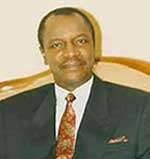
Alexis Arieff, Analyst in African Affairs
Nicolas Cook, Specialist in African Affairs
Congressional Research Service — November 5, 2009
The Library of Congress, 101 Independence Avenue, SE, Washington, DC 20540-7500
There are over 60 registered political parties in Guinea, according to the website of the national electoral commission 2. Conté’s political party, the Party for Unity and Progress (PUP), fractured following the president’s death, and it is not expected to garner significant support in a popular vote. Parties expected to compete in elections include a handful of former opposition parties as well as dozens of new parties formed after Conté’s death. Many parties are generally perceived as having an ethnic or regional base, and as having little organizational capacity. Leaders’ electoral potential is difficult to assess, particularly as Conté ran essentially unopposed in Guinea’s most recent presidential election, in 2003, amid an opposition boycott.

The RPG is believed to be Guinea’s largest political party, and Condé is a potential front-runner for the presidency. At the same time, he has been criticized for living overseas during much of Guinea’s recent history. Condé’s base is thought to be the Malinké ethnic group, concentrated in Guinea’s northeast, though he is believed to draw some cross-ethnic support. A former exiled opponent of founding president Ahmed Sékou Touré during Guinea’s first republic, Condé challenged Lansana Conté in presidential elections in 1993 (Guinea’s first multiparty election) and 1998. He received 19% and 16% of the vote, respectively, in these elections; both were marred by reports of irregularities and fraud. Following the 1998 election, Condé was arrested for trying to leave the country “illegally” and attempting to overthrow the government. He was sentenced to five years in prison in 2000, but released in 2001 on a presidential pardon. Condé and the RPG boycotted the 2002 legislative election and the 2003 presidential election.
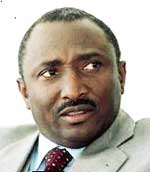
Touré served as prime minister from 1996 to 1999. Many Guineans credit him with initiating government reforms as head of a relatively technocratic government appointed by Conté amid a faltering economy. A member of the tiny Diakhanké ethnic group, Touré is believed to benefit from significant cross-ethnic appeal. However, his personal popularity is thought to far outshine his party’s ability to garner votes in a legislative contest. Touré’s base is in Conakry, both because he is from the coast and because his time as prime minister is remembered as a period in which government services in the capital, such as running water and electricity, noticeably improved. In 2004, Touré was accused of plotting a coup; many believe the charges were politically motivated.
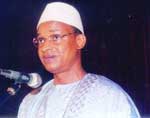
Diallo held several ministerial portfolios starting in the 1990s, and served as prime minister from late 2004 until mid-2006. He was appointed to head the UFDG in 2007, succeeding founder Mamadou Bâ (who had garnered over 24% of the vote in the 1998 presidential election); Bâ had earlier led a split from the Union pour le Progrès et le Renouveau (Union for Progress and Renewal, UPR) 3. In January 2009, members of the military raided Diallo’s Conakry home and accused him of hiding weapons and recruiting “mercenaries.” The junta later denounced the raid and claimed it was the work of rogue soldiers. Diallo is credited by the international community with overseeing local council elections in December 2005, which were thought to be Guinea’s most free and fair (despite some flaws), but he has also been dogged by corruption allegations and the perception that he was too close to Conté. Diallo and the UFDG are seen as relying primarily on an ethno-regional base among Guinea’s Peul (Fulɓe) community of the northern Fouta Djallon region.
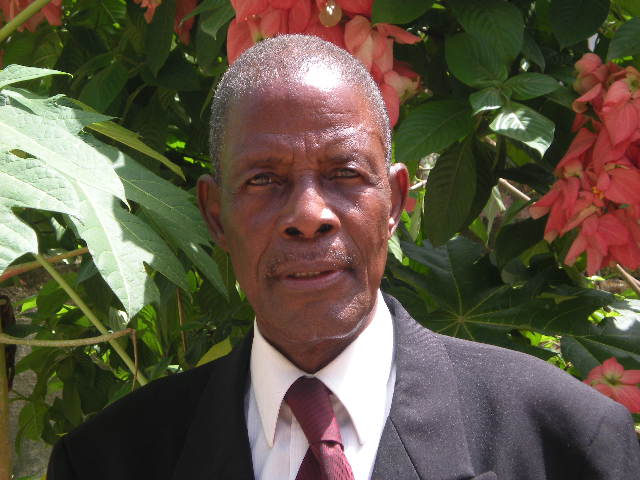
A longtime opponent of Conté and former close associate of Sékou Touré, Doré ran for president in 1998 but garnered less than 2% of the vote. Since the coup, he has served as spokesman of the “Forces Vives” coalition of political parties and civil society groups, which is the primary civilian entity negotiating with the CNDD over the transition to civilian rule. Doré is a member of the Guerzé ethnic group, to which Dadis Camara also belongs; like Dadis Camara, he is a Christian. The UPG won three seats in the National Assembly in 2002 legislative elections.
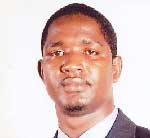
Diallo, head of the newly formed NFD party, is a relatively young newcomer to Guinean politics who has taken an active role in opposing the CNDD. Diallo was reportedly threatened with arrest in August, and he was one of several opposition leaders to be targeted by the military during the protests of September 28, 2009.
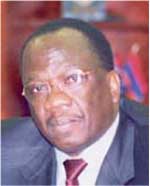
A career diplomat and former Guinean representative to the United Nations, Fall served as foreign minister for two years and prime minister for two months in 2004. He was praised by some Guineans for choosing to resign as prime minister because, he said, he could no longer work with Conté.
Fall remained abroad after his resignation and worked for the United Nations as the Secretary-General’s special envoy for Somalia, Burundi, and the Central African Republic; his time in exile is thought to detract from his popularity. He returned to Guinea in March 2009 to launch a presidential campaign.
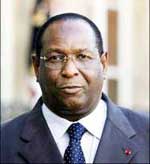
A career diplomat, Kouyaté was appointed to serve as a “consensus” prime minister in early 2007 amid attempts to end nationwide anti-government protests. Kouyaté’s appointment was initially met with widespread optimism, and he reportedly benefited from enormous popularity during his first months in office. However, despite some successes, such as an audit of government institutions and the renegotiation of international debt-relief agreements, his attempts to initiate sweeping institutional reforms stalled. In May 2008, Conté’s decision to sack Kouyaté via presidential decree met with little organized protest. Kouyaté left the country, but returned in early 2009 and founded his own party in April.
Notes
1. The following profiles are drawn from Arieff interviews, news reports, and International Crisis Group publications.
2. Available at CENI.
3. Led by Ousmane Bah, the UPR was the largest opposition bloc in the National Assembly, with 20 seats, before the legislature was dissolved by the CNDD. However, the last legislative elections were boycotted by the RPG. The UPR’s electoral appeal is untested following its fragmentation.